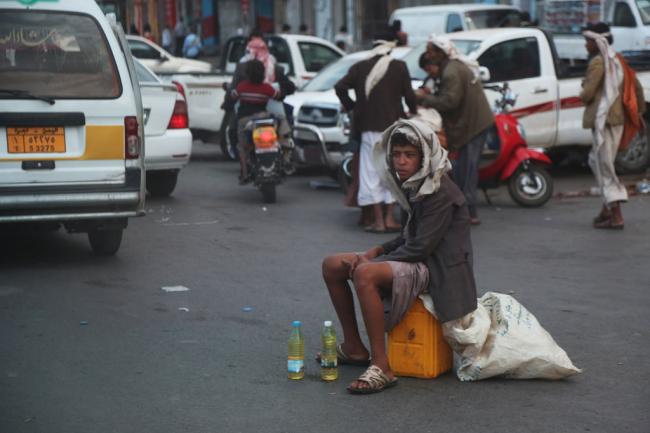
'Terrible year' in war-torn Yemen leaves majority of country's people in need of aid – UN
“It has been a terrible year for Yemen, during which a war peppered with airstrikes, shelling and violence had raged on in the already very impoverished country,” Jamie McGoldrick, Humanitarian Coordinator in Yemen told journalists in Geneva.
Shelling of ports and airports, resulting in blockades and congestion, is one of the drivers of the humanitarian crisis, McGoldrick said, noting that health workers cannot reach patients and some 90 per cent of the food has to be imported.
“The country had had extremely high levels of poverty before the war, and currently, the war has escalated, in an already fragile environment,” said the aid official.
Some 6,400 people have been killed in the past year, half of them civilians, and more than 30,000 are injured, with 2.5 million people displaced, according to figures from the UN World Health Organization (WHO).
In addition, more than 20 million people, or 80 per cent of the population, require some form of aid – about 14 million people in need of food and even more in need of water or sanitation.
The UN has appealed for $1.8 billion for food, water, health care and shelter and protection issues, but only 12 per cent has been funded so far.
Also speaking in Geneva, Bettina Luescher for the World Food Programme (WFP) said that shortages forced the agency to cut rations to 75 per cent of a full ratio so that enough people could eat. She also highlighted the problems with movement and inability of workers to safely reach all the areas in need.
“Yemen should not be forgotten, with all the attention focused on the Syria crisis,” she said.
UN action on the ground
The UN human rights chief last week condemned the repeated failure of the Coalition to effectively prevent civilian coalition airstrikes after two deadly strikes – just weeks apart – killed nearly 150 people, including children.
UN High Commissioner for Human Rights Zeid Ra'ad Al Hussein said incidents that have hit markets, hospitals, clinics, schools and other civilian structures occur “with unacceptable regularity.”
The National Oncology Centre in Sana'a announced that it was on the brink of shutting down, with more than 100 other hospitals, blood banks and other health facilities impacted by the violence.
There is now a localized ceasefire along the Yemeni border with Saudi Arabia, but the airstrikes continue.
UN spokesperson Farhan Haq in New York on Tuesday said that UN Special Envoy for Yemen, Ismail Ould Cheikh Ahmed, who leads the political process, has been meeting with the parties to the conflict, but no date has yet been announced for direct talks.
In the meantime, the UN is also preparing for longer-term reconstruction and providing some urgently needed jobs.
The UN Development Programme (UNDP) is focusing on mine clearance, public service restoration and emergency employment, spokesperson Sarah Bel said. One of the public services being restored is waste collection, part of the cash-for-work schemes under UNDP's umbrella.
Photo: OCHA/ Charlotte Cans
Support Our Journalism
We cannot do without you.. your contribution supports unbiased journalism
IBNS is not driven by any ism- not wokeism, not racism, not skewed secularism, not hyper right-wing or left liberal ideals, nor by any hardline religious beliefs or hyper nationalism. We want to serve you good old objective news, as they are. We do not judge or preach. We let people decide for themselves. We only try to present factual and well-sourced news.







